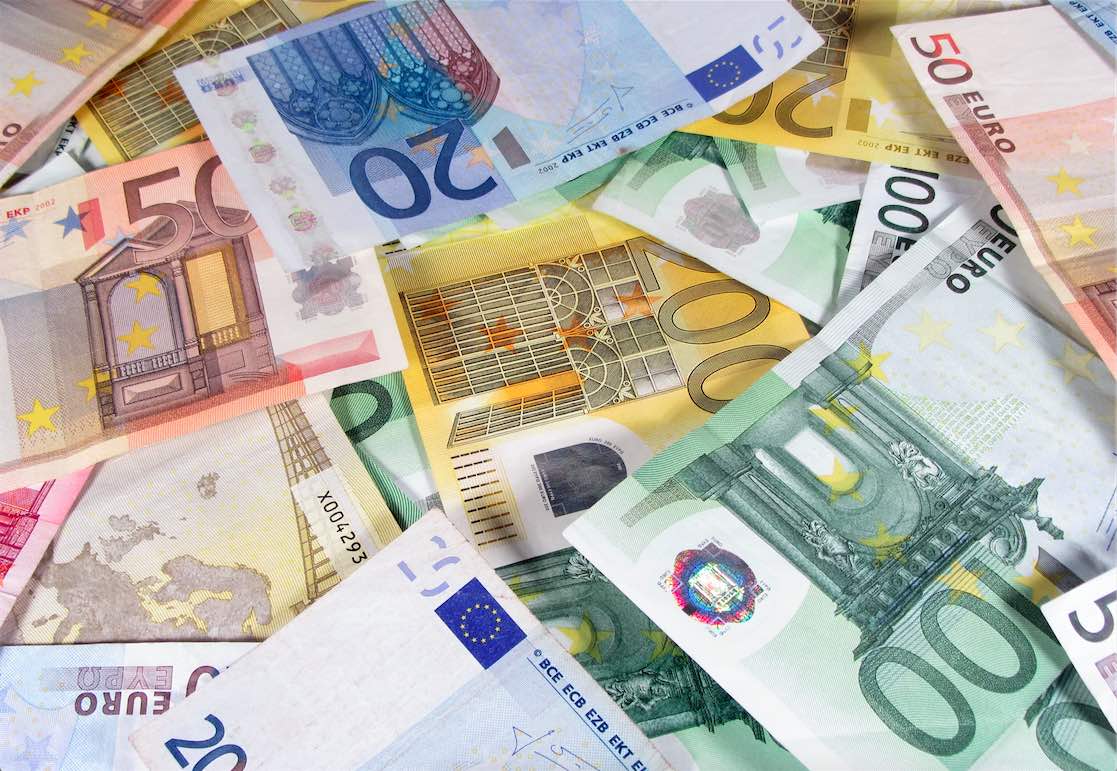Foreign Exchange Market Research

When investing in currency pairs, it is always good to check out the latest Forex Exchange (FX) Market Research.
How can we stay ahead of the curve in the ever-shifting landscape of the foreign exchange market? This question underscores the indispensable role of foreign exchange market research. By delving deep into market fundamentals, technical analysis, and sentiment indicators, market researchers provide the insights needed to make informed decisions and execute winning strategies in the highly competitive world of currency trading.
What Is Foreign Exchange Market Research?
Foreign exchange market research systematically analyzes currency markets to gain insights into currency movements, exchange rate fluctuations, and factors influencing currency values.
Importance of Foreign Exchange Market Research
Foreign exchange market research serves as a strategic tool for navigating the complexities of currency markets, assessing exchange rate trends, and mitigating currency risks.
Furthermore, through comprehensive analysis of currency markets and exchange rate dynamics, businesses can identify potential currency risks, develop risk management strategies, and implement hedging techniques to protect against adverse currency movements.
Moreover, foreign exchange market research provides businesses valuable insights into global economic trends, central bank policies, and geopolitical developments that influence currency markets. However, foreign exchange market research also offers businesses a range of tangible benefits that contribute to their success in the global marketplace, including:
- Risk Mitigation: Foreign exchange market research helps businesses identify and mitigate currency risks associated with international transactions.
- Cost Optimization: Effective foreign exchange market research enables businesses to optimize their currency-related costs by identifying opportunities to minimize transaction fees, exchange rate spreads, and other expenses associated with international trade and investment activities.
- Performance Evaluation: Continuous monitoring and analysis of currency markets through foreign exchange market research enable businesses to evaluate the performance of their currency management strategies and adjust their approach as needed.
Foreign Exchange Market Research Vs Traditional Market Research

Unlike traditional market research, which may encompass a broader range of topics such as consumer behavior, product preferences, and market segmentation; foreign exchange market research centers on understanding the dynamics of currency markets and their impact on businesses operating in the global marketplace.
Similarly, in foreign exchange market research, a significant emphasis is placed on analyzing economic indicators, central bank policies, geopolitical events, and other macroeconomic factors that influence currency movements. Traditional market research may focus more on consumer trends, market demand, and competitive analysis within specific industries or market segments.
Expected Results from SIS International’s Foreign Exchange Market Research
SIS International’s Foreign Exchange market research endeavors aim to provide clients with actionable insights, strategic recommendations, and competitive advantages in navigating the complexities of the global currency market. Through meticulous analysis, comprehensive data collection, and expert interpretation, we deliver valuable outcomes that empower clients to make informed decisions and optimize their foreign exchange operations.
In-depth Market Analysis: SIS International conducts an in-depth Foreign Exchange market analysis, examining key factors such as currency pairs, exchange rate movements, market trends, and macroeconomic indicators.
- Risk Assessment and Management: SIS helps clients assess and mitigate currency risks associated with foreign exchange transactions, market volatility, and geopolitical events.
- Competitive Intelligence: SIS International provides clients with competitive intelligence and benchmarking analysis to understand their position relative to peers and competitors in the Foreign Exchange market.
- Regulatory Compliance: SIS International assists clients in navigating regulatory requirements and compliance issues related to foreign exchange transactions, regulatory changes, and legal frameworks.
Leading Segments
The foreign exchange market encompasses various segments, each with distinct characteristics, participants, and drivers of demand. Understanding these leading segments is crucial for businesses and investors seeking to navigate the complexities of the global currency market and identify profitable opportunities for investment and trading.
- Currency Pairs: One of the primary segments of the foreign exchange market is currency pairs, which represent the exchange rate between two currencies. Major currency pairs, such as EUR/USD, GBP/USD, and USD/JPY, account for most trading volume and liquidity in the market. These pairs typically involve currencies issued by major economies with stable political and economic fundamentals, making them popular choices for investors and traders seeking liquidity and stability.
- Spot Market: The spot market is another leading segment of the foreign exchange market, where currencies are traded for immediate delivery or settlement at current exchange rates. The spot market accounts for the majority of trading volume in the Foreign Exchange market, offering liquidity, transparency, and real-time price discovery for market participants. Spot transactions are conducted over-the-counter (OTC) through electronic trading platforms, interbank networks, and brokerages, enabling investors, businesses, and financial institutions to execute currency trades efficiently and securely.
- Derivatives Market: Derivatives provide investors and traders with opportunities to speculate on exchange rate movements, hedge against currency risk, and gain exposure to foreign exchange markets without directly trading currencies. The derivatives market offers market participants flexibility, leverage, and risk management tools, enabling them to tailor their trading and investment strategies to their specific objectives and risk profiles.
Market Growth Factors

Several factors contribute to the growth and development of the foreign exchange market, shaping its dynamics, liquidity, and participation levels. Understanding these growth factors is essential for investors, traders, businesses, and policymakers seeking to navigate the evolving landscape of the global currency market and capitalize on emerging opportunities.
- Globalization and International Trade: The expansion of international trade and globalization has fueled the growth of the foreign exchange market, as businesses engage in cross-border transactions, import-export activities, and supply chain operations. The increased interconnectedness of economies, trade liberalization efforts, and the rise of multinational corporations have led to higher demand for currency exchange services, hedging instruments, and risk management solutions, driving trading volumes and liquidity in the market.
- Financialization and Investment Flows: The financialization of the economy and the growing importance of financial markets have contributed to the growth of the foreign exchange market, as investors allocate capital to currencies as an asset class, diversify investment portfolios, and seek opportunities for yield enhancement and capital appreciation.
- Technological Advancements: Technological advancements in electronic trading, algorithmic trading, and high-frequency trading have revolutionized this market, making it more accessible, efficient, and transparent for market participants. The adoption of electronic trading platforms, automated trading algorithms, and smart order routing systems has accelerated trade execution, reduced transaction costs, and enhanced liquidity provision in the market, attracting a broader range of participants and increasing market efficiency.
- Geopolitical Events and Risk Factors: Geopolitical events, geopolitical tensions, and geopolitical risk factors can significantly impact exchange rates and market sentiment in the foreign exchange market. Political instability, geopolitical conflicts, trade disputes, and geopolitical developments can lead to currency fluctuations, capital flight, and risk aversion among investors, influencing trading patterns and market dynamics.
Key Target Audience
In the FX market, various entities and individuals participate in currency trading, hedging, and investment activities, each with specific objectives, strategies, and roles. Understanding the key target audience is essential for market participants, financial institutions, and service providers seeking to tailor their products, services, and marketing efforts to effectively meet their target customers’ needs.
Institutional Investors, including pension funds, insurance companies, and asset managers, constitute a significant portion of the foreign exchange market’s target audience. These entities engage in currency trading, hedging, and investment activities to manage portfolio risk, diversify asset allocation, and optimize returns.
Corporate Treasuries play a crucial role in the market as they manage currency risk associated with international trade, cross-border transactions, and foreign operations. Multinational corporations, exporters, and importers utilize foreign exchange market products and services, such as forward contracts, options, and swaps, to hedge against adverse currency movements, protect profit margins, and optimize cash flow management.
Financial Institutions are key participants in this market, providing liquidity, execution services, and financial products to clients. Banks engage in currency trading, market making, and proprietary trading activities to facilitate customer transactions, manage balance sheet risks, and generate trading revenues.
Retail Traders and Individual Investors represent a growing segment of the foreign exchange market’s target audience, attracted by the accessibility, liquidity, and profit potential of currency trading. Retail traders engage in speculative trading, day trading, and algorithmic trading strategies to capitalize on exchange rate movements and generate returns from currency trading.
Central Banks and Government Agencies play a critical role in the foreign exchange market as regulators, policymakers, and market participants. Central banks intervene in currency markets to stabilize exchange rates, manage monetary policy objectives, and maintain financial stability. Government agencies monitor market developments, enforce regulations, and oversee financial institutions’ compliance with Foreign Exchange market rules and standards.
Main Opportunities and Challenges in Foreign Exchange Market Research

Foreign exchange market research presents various opportunities and challenges for businesses to enhance operations, manage currency risks, and capitalize on international market trends.
Opportunities
- International Expansion: Foreign exchange market research provides valuable insights into currency markets and exchange rate dynamics in target markets for businesses planning to expand their operations internationally. Businesses can assess the feasibility of international expansion initiatives, evaluate currency-related risks, and develop strategies to enter new markets successfully.
- Competitive Advantage: Businesses that conduct comprehensive foreign exchange market research gain a competitive advantage in the global marketplace.
Challenges
- Volatility and Uncertainty: Currency markets are volatile and uncertain, with exchange rates often subject to sudden fluctuations and unpredictable movements. Managing currency risks and making informed decisions in volatile market conditions can be challenging for businesses, as they need to anticipate and respond to rapid changes in exchange rates and market dynamics.
- Regulatory Compliance: Businesses operating in multiple jurisdictions must comply with regulatory requirements and legal restrictions related to currency transactions and foreign exchange operations. Navigating the regulatory landscape, understanding compliance obligations, and ensuring adherence to regulatory standards pose challenges for businesses conducting foreign exchange market research.
Industry Attractiveness: Porter’s Five Forces Analysis
Porter’s Five Forces analysis provides a framework for assessing the competitive dynamics and attractiveness of the FX market. Market participants can identify strategic opportunities, threats, and factors influencing profitability and market structure by examining the forces that shape industry competition.
- Threat of New Entrants: The threat of new entrants in the market is relatively low due to high barriers to entry, including regulatory requirements, capital investment, and technological infrastructure. Established players benefit from economies of scale, network effects, and brand recognition, making it challenging for new entrants to compete effectively.
- Bargaining Power of Buyers: The bargaining power of buyers in the FX market varies depending on their size, sophistication, and trading volume. Institutional investors and corporate clients often have significant bargaining power due to their large transaction volumes, sophisticated trading strategies, and access to multiple liquidity providers. Retail traders and individual investors have limited bargaining power, relying on brokers and trading platforms for execution services and access to liquidity.
- Bargaining Power of Suppliers: In this market, liquidity providers, technology vendors, and regulatory authorities are key suppliers that influence market dynamics and participant behavior. Liquidity providers, such as banks and market makers, wield significant bargaining power because they provide liquidity, set bid-ask spreads, and execute trades. Technology vendors offer trading platforms, data feeds, and analytics tools, exerting influence through their products’ pricing, features, and reliability. Regulatory authorities shape market structure, participant conduct, and compliance requirements, impacting market participants’ operating environment and profitability.
- Threat of Substitute Products or Services: The threat of substitute products or services in the foreign exchange market is moderate, as participants have multiple alternatives for executing currency transactions, managing currency risk, and accessing financial markets. While traditional spot and forward contracts remain dominant, derivatives such as options, swaps, and futures offer alternative hedging instruments and trading opportunities. Additionally, advancements in fintech and the emergence of cryptocurrency markets provide alternative avenues for currency trading and investment, albeit with different risk profiles and market dynamics.
- Intensity of Competitive Rivalry: Competitive rivalry in the market is high, characterized by numerous participants, low switching costs, and intense competition for market share and trading volume. Banks, brokers, and trading platforms vie for customers’ attention, offering competitive pricing, execution speed, and value-added services to attract and retain clients. Market fragmentation, technological innovation, and regulatory changes contribute to competitive pressures, driving consolidation, partnership formation, and strategic alliances among market participants.
How SIS International’s Services Help Businesses

SIS International offers a range of services designed to assist businesses in navigating the complexities of the FX market, optimizing their trading strategies, and achieving their financial objectives. With its expertise, industry knowledge, and global network, our team provides tailored solutions to address the unique needs and challenges faced by businesses operating in the dynamic and competitive currency market.
Market Research and Analysis: SIS International conducts comprehensive market research and analysis to give businesses valuable insights into market trends, competitive dynamics, and emerging opportunities. Through in-depth research reports, market assessments, and strategic recommendations, we help businesses make informed decisions, identify growth opportunities, and mitigate risks in the global currency market.
Regulatory Compliance Support: SIS International offers regulatory support services to help businesses navigate complex regulatory requirements, adhere to industry standards, and mitigate compliance risks in the Foreign Exchange market. With its regulatory expertise, compliance frameworks, and monitoring capabilities, SIS assists businesses in understanding regulatory changes, implementing compliance measures, and maintaining regulatory compliance in their operations.
Risk Management Solutions: SIS International provides risk management solutions to help businesses effectively manage currency risk, volatility, and exposure in the Foreign Exchange market. Our experts help businesses hedge against adverse currency movements, protect profit margins, and minimize financial losses in volatile market conditions through customized hedging strategies, risk assessment tools, and portfolio optimization techniques.
Technology Integration Services: We offer technology integration services to help businesses leverage cutting-edge technology, trading platforms, and analytics tools to enhance their competitiveness. With its technology expertise, system integration capabilities, and software development services, SIS International helps businesses streamline trade execution, optimize trading strategies, and improve operational efficiency in the digital currency market.
Geopolitical Risk Analysis: SIS conducts geopolitical risk analysis to help businesses assess and mitigate geopolitical risks affecting currency markets, such as trade tensions, geopolitical conflicts, and regulatory changes. SIS International assists businesses in understanding geopolitical dynamics, adapting their trading strategies, and safeguarding their interests in the volatile geopolitical environment.
Our Facility Location in New York
11 E 22nd Street, Floor 2, New York, NY 10010 T: +1(212) 505-6805
About SIS International
SIS International offers Quantitative, Qualitative, and Strategy Research. We provide data, tools, strategies, reports, and insights for decision-making. We also conduct interviews, surveys, focus groups, and other Market Research methods and approaches. Contact us for your next Market Research project.


